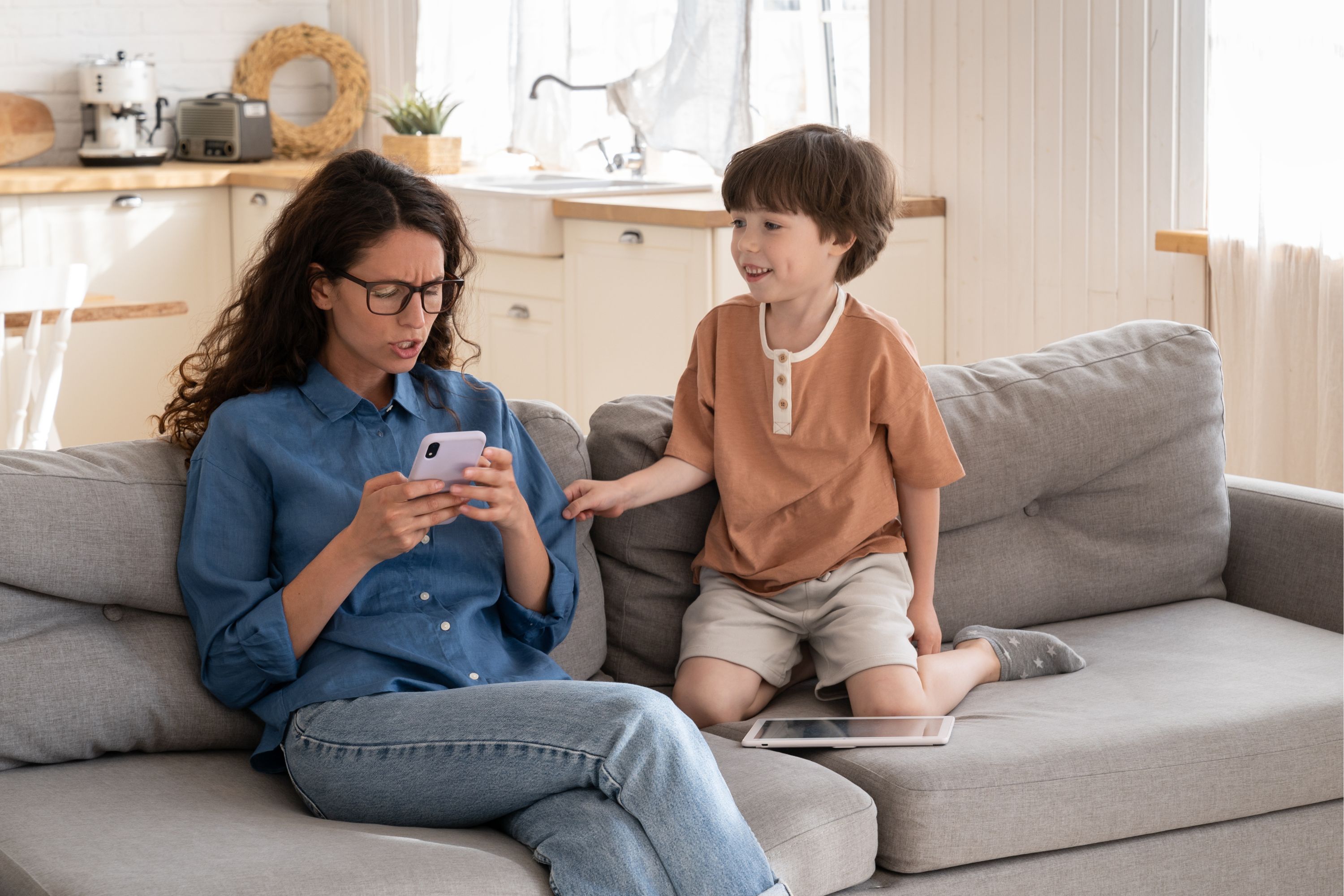New Research Suggests That All Distractions Negatively Impact The Quality And Quantity Of Parent-Child Interactions, Not Just Screen Time On Digital Devices

Humans use technology more now than ever before, and when it comes to parenting, the idea that too much screen time can dampen familial connections and harm child development has been heavily studied.
But, when it comes to parent-child relationships, scientists have introduced a concept known as “technoference,” which refers to how the use of digital devices can disrupt interaction and communication between parents and children.
Still, it remained unclear whether distractions from digital devices are more harmful to parent-child interactions than other sources of parental distractions.
So, a research team from Switzerland set out to investigate this question. They found that while screens do have a detrimental effect on parent-child interactions, they are actually no worse than other types of distractions.
In other words, it appears that distractions in general – rather than screens specifically – are what negatively affect parental communication with toddlers.
“In this study, we show that when parents are distracted, the quality and quantity of parent-child interaction is impaired compared to when parents are not being distracted. This was regardless of if that distraction came from a digital or a non-digital activity,” explained Nevena Dimitrova, the study’s lead investigator.
Again, while the adverse impacts of parents getting distracted by their phones are well-documented, it remained unclear whether the negative effects were tied to screen use specifically or distractions overall.
To get to the bottom of this question, the researchers conducted a study involving 50 parent-child pairs. The children had an average age of 22 months old.
The pairs were asked to spend 10 minutes playing together and were also divided into three different groups. The first group had no disruptions; meanwhile, parents in the second group were provided with a paper questionnaire to fill out after five minutes of play.
DimaBerlin – stock.adobe.com – illustrative purposes only, not the actual people
Sign up for Chip Chick’s newsletter and get stories like this delivered to your inbox.
Lastly, in the third group, the parents were also instructed to fill out the same questionnaire after five minutes of play – this time, on a tablet.
Additionally, while the parents in both the second and third groups filled out the questionnaires, they were told to continue interacting with their kids.
The study showed that parents who filled out the questionnaire were less responsive to their children’s communication signals. The children also exhibited lower social engagement levels with their parents.
Perhaps shockingly, though, it was revealed that “technoference” did not have a more harmful impact on parent-child interactions than non-digital distractions. Rather, all forms of distraction – whether from screens or a simple pen and paper – adversely affected both parents, children, and their interactions.
“We interpret this finding – that was equally surprising for us – as the possibility that screens are so ubiquitous nowadays that young children might be becoming used to the reality of seeing their parents with screens,” Dimitrova noted.
Despite the study’s results, the researchers also emphasized how parent-child interactions are most effective when parents are completely focused and undistracted.
Moreover, in the media, there is a lot of discourse surrounding the risks of screen use. However, scientific research doesn’t exclusively support the idea that screen use by or around children is entirely negative.
In fact, some past studies have shown the positive effects that screens can have on children’s psychological development.
“This study shows how important it is to rely on scientific evidence rather than public opinion about screen use. We see that it’s not screens per se that are detrimental to the quality of parent-child interaction. Instead, it seems to be the fact that the parent is not fully engaged in the interaction that negatively impacts parent-child communication,” Dimitrova concluded.
To read the study’s complete findings, which have since been published in Frontiers in Child and Adolescent Psychiatry, visit the link here.
Welcome to Billionaire Club Co LLC, your gateway to a brand-new social media experience! Sign up today and dive into over 10,000 fresh daily articles and videos curated just for your enjoyment. Enjoy the ad free experience, unlimited content interactions, and get that coveted blue check verification—all for just $1 a month!
Account Frozen
Your account is frozen. You can still view content but cannot interact with it.
Please go to your settings to update your account status.
Open Profile Settings